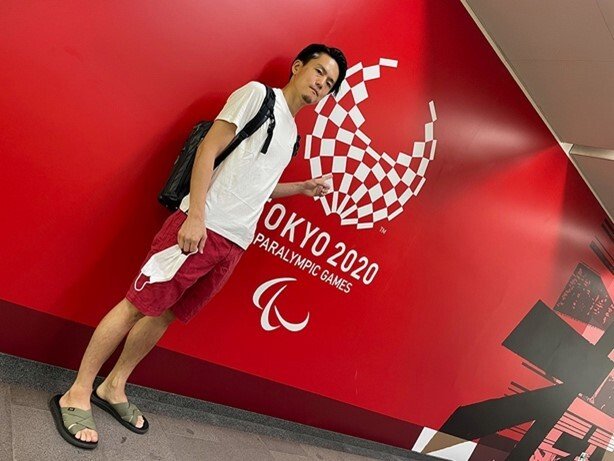Lab visit in Tokyo during the Olympics
Makoto Shimozawa from the Department of Neurobiology, Care Sciences and Society, was awarded a travel grant through the collaboration with the University of Tokyo.

Why the University of Tokyo?
The University of Tokyo is the first national university and one of the leading research universities in Japan with outstanding Alzheimer research. Our lab has an established collaboration with Laboratory of Neuropathology and Neuroscience (led by Dr. Tomita) in the University of Tokyo. Dr. Tomita has developed photo-oxygenation catalysts which induce oxygenation of Ab and tau protein, and they have found that photo-oxygenated Ab is rapidly cleared by microglia in cultured cell system and AD mouse model brain. Since Ab clearance in brain is one of our interests, I visited to Dr. Tomita’s lab to learn the photo-oxygenation methods.
What did you do during your lab visit?
I stayed two weeks in his lab, and I learned the photo-oxygenation method of recombinant Ab. I confirmed the oxygenation of Ab by western blotting and used Thioflavin T staining and electron microscopy to assess the aggregation of recombinant Ab with or without oxygenation. I also presented my research being performed in KI including RNA sequencing and autophagy analysis of our AD mouse model brain in their lab seminar. The students were very active. I got a lot of questions, and we had a great discussion.
What was the major differences between working in a lab KI and the University of Tokyo?
The size of lab is bigger than the lab in KI. We are sharing lab equipment in our division and sometimes we visit facility to use equipment which we don’t have. In Tomita’s lab, they have almost everything for their research in the lab including a cell lab, a mouse house, and an electron microscope. Moreover, more than 30 students work in the lab.
What is your impression of Tokyo?
I visited Tokyo during coronavirus 5th wave, therefor the city was under the state of emergency and there were several restrictions. The city was well controlled. Most people well following these regulations. It was very Japanese. I needed to be in quarantine for two weeks when I arrived in Japan. The first 4 days, I was isolated in the hotel and I couldn’t go out from the room. Hotel staffs brought every meal and hung it on outside of the door. I was allowed to take it after staff left not to meet them. Rest of the 10 days, I could stay at home for quarantine, but I had to install an app tracking me on my phone and I received a call through the app to check if I was isolated correctly. The regulation was quite strong compared with Sweden. But I could eat very tasty Japanese food.
Do you have any recommendations for doctoral students/researchers wanting to do a lab visit/research visit in Japan?
Researchers do good research, and they work hard in the University of Tokyo. I am sure you can learn unique technics from them. I recommend you spend time with them not only inside but also outside of the lab, for example eating good Japanese food together. Japanese people are a little bit shy but once you share good food, they will be more friendly. You will experience real Japan!
Can you share a memorable experience from your stay?
We had Olympic game in Tokyo during my visits. Even it was no audience allowed at the game because of coronavirus, it was great experience to have such a big worldwide event in Tokyo. I watched games almost every day, their professionalism was impressive and I got a lot of energy from them.
What will you bring back to KI?
I believe that my visiting to Tomita’s lab was a good opportunity to keep our collaboration. For these two years, it was almost impossible to exchange people between Sweden and Japan because of coronavirus pandemic. We had a meeting with Dr. Tomita and we promised to keep this collaboration. I will receive oxygenated Ab and tau from them and will analyze the role of autophagy in the degradation of oxygenated proteins. I hope we can travel normally between Sweden and Japan soon.
In the end, I would like to thank KI travel award for collaboration with the University of Tokyo. Thanks to your support, I had a valuable experience in Dr. Tomita’s lab.
Makoto's area of research: Alzheimer’s disease (AD) is a neurodegenerative disorder characterized by impairment of protein homeostasis. Our lab focuses on the role of autophagy in metabolism and spreading of amyloid beta peptide (Ab) and tau protein which are accumulated and aggregated in AD brain. Autophagy is a major intracellular clean up system which is impaired in AD. We are analyzing the mechanism of autophagy in metabolism and spreading of Ab and tau protein by using our novel AD mouse models.
